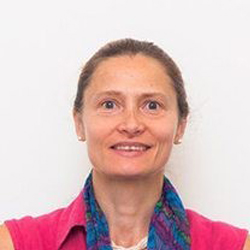Characterization of the quality control mechanisms that operate in human mitochondrial protein synthesis
Research
The mitochondrion is an organelle found in all nucleated cells of higher eukaryotes. It is the site of oxidative phosphorylation and contains its own genome that encodes 13 proteins, which are essential components of these respiratory complexes. In addition to the mRNAs the genome also encodes the 22tRNAs and 2 rRNAs that are required for this intra-mitochondrial protein synthesis.
It is the fate of these mitochondrial mRNA species that we are investigating. Although much is known about the turnover of cytosolic and bacterial transcripts, until very recently almost nothing was clear about the mitochondrial RNA species. Do they behave as their bacterial ancestors or follow the example of the cytosol in which they reside ? What is the normal decay mechanism and what are the enzymes responsible for carrying out these activities ? We have identified that in contrast to yeast, the mammalian mt-transcripts are polyadenylated but the function of this tail is not yet certain. In bacteria it enhances decay, whilst in the eukaryote cytosol it is bound by poly(A) binding proteins and promotes both stability and translation.
Since the mitochondrial genome cannot yet be manipulated we have used cell lines with identified mutations to try and answer some of these questions. Most of the mt-mRNAs require polyadenylation to generate the Stop codon. By using a cell line that has a 2 base pair microdeletion the resulting mRNA loses the termination codon we have identified a ‘non-stop’ decay mechanism and shown that in this situation the poly(A) tail confers stability to the aberrant transcript.
Our work is presently focussed on identifying the mitochondrial nucleases and mt-RNA-binding proteins involved in the mechanism described above as well as those involved in the normal deadenylation and decay and characterising their specificity. We are also looking at the release factors and recycling factors that are likely to be responsible for terminating translation.
Latest Publications
Temperley R, Richter R, Dennerlein S, Lightowlers RN, Chrzanowska-Lightowlers ZM. (2010). Hungry codons promote frameshifting in human mitochondrial ribosomes. Science, 327(5963) 301
Hornig-Do HT, Montanari A, Rozanska A, Tuppen HA, Almalki AA, Abg-Kamaludin DP, Frontali L, Francisci S, Lightowlers RN, Chrzanowska-Lightowlers ZM. (2014). Human mitochondrial leucyl tRNA synthetase can suppress non cognate pathogenic mt-tRNA mutations. EMBO Mol Med., 6(2):183-93
Wilson WC, Hornig-Do HT, Bruni F, Chang JH, Jourdain AA, Martinou JC, Falkenberg M, Spåhr H, Larsson NG, Lewis RJ, Hewitt L, Baslé A, Cross HE, Tong L, Lebel RR, Crosby AH, Chrzanowska-Lightowlers ZM, Lightowlers RN. (2014). A human mitochondrial poly(A) polymerase mutation reveals the complexities of post-transcriptional mitochondrial gene expression. Hum Mol Genet., 23(23):6345-55
Contact
Contact

Trust Centre for Mitochondrial Research, Newcastle University
Institute of Neuroscience, The Medical School, Framlington Place
Newcastle upon Tyne, NE2 4HH, UK
Telephone +44-191-208-8028
E-mail zofia.chrzanowska-lightowlers(at)ncl.ac.uk
Website
